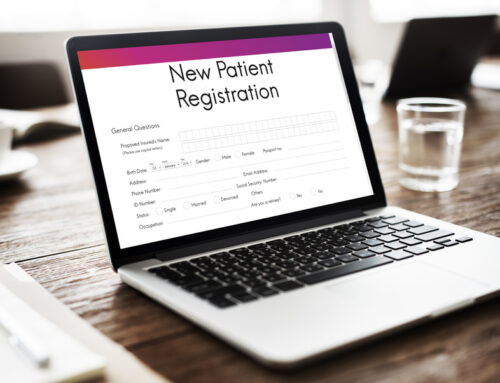It’s hard to believe, but 2018 is almost a wrap! I know this is the season for holiday celebrations, self-reflection, and goal-setting, but as a professional health advocate, I am always thinking about your health.
Here are my top 4 healthcare tips as you prepare for 2019.
Tip #1: Schedule your annual physical. Share on X
Many individuals underestimate the value of the annual physical (also referred to as an annual preventive exam, periodic health exam, health maintenance visit, or in lay terms, the “check-up”). I will acknowledge that studies have questioned the benefit of this longstanding ritual due to lack of evidence that it decreases morbidity/ mortality and can sometimes lead to unnecessary tests. However, as a physician, patient, former family caregiver, and health advocate, I continue to believe that annual checkups are important.
Here are 3 reasons to schedule your annual physical:
- It’s a great opportunity to update your health history.
Your health is likely to change from year to year, even if the changes are subtle. The annual physical is a great time to check in with your doctor to provide updates about your general health. Perhaps you’ve noticed more frequent headaches that were not bothersome enough to take off from work for an appointment. Maybe you’ve gained 15 pounds due to poor eating habits. Perhaps your sibling was diagnosed with a condition that has a hereditary component. Each of these may put you at increased risk for chronic illnesses. It’s important that your doctor is aware of this new information so that she can act accordingly.
- Regular visits help you establish a relationship with your physician.
If you’ve been following me, you know that I am a huge proponent of the doctor-patient relationship. When you know, like, and trust your doctor, you are more likely to engage in meaningful dialogue, understand your health conditions, follow through with recommendations, and ultimately benefit from improved health outcomes. If your doctor is part of a group practice, it may be difficult to see him consistently for acute visits (those scheduled for an illness or injury). Even if you’re lucky enough to see your primary care physician when you’re not feeling well, those visits are often rushed and may not allow for much connection. The annual physical is your opportunity to reconnect with your primary care physician and to form and strengthen bonds that can potentially last for years to come.
- Your doctor is your accountability partner.
Remember last year when you told your doctor you were going to stop smoking, lose 10 pounds, or begin walking for 30 minutes every day? We often make promises to our doctor about engaging in healthy behaviors. I don’t know about you, but I’m much more likely to follow through with something if I have someone holding me accountable. To truly be successful at developing a new habit, you will need reinforcement more frequently than once a year. However, knowing that annual visit is approaching may be just the push you need to make good on your promise.
Talk with your doctor about the frequency of your annual checkups. Based on your age or health status, she may recommend a visit every 2-3 years instead of annually. The key is to establish a pattern of preventive healthcare. Doctors are just for when you’re sick.
Tip #2: Follow up on all recommended screening tests. Share on X
After seeing your doctor for your annual physical exam, he may recommend a variety of screening tests based on your age and other health risks. (Note: some physicians prefer to order these screening tests in advance of the appointment so that they can discuss the results during the visit.) This may include blood tests to screen for elevated cholesterol levels or diabetes, diagnostic procedures to screen for cancer, such as a mammogram, pap smear, or colonoscopy, and/or tests to screen for sexually transmitted infections. It is important that you follow your doctor’s recommendations, as these tests are meant to diagnose serious health conditions early and prevent or minimize significant complications. In addition to screening tests, your doctor may recommend vaccinations to protect you from a variety of infections that will threaten your health. For a list of recommended preventive care recommended by the Centers for Disease Control and Prevention (CDC) and the United States Preventive Services Task Force (USPSTF), go to healthfinder.gov.
Tip #3: Organize your health information. Share on X
If I’ve said it once I’ve said it a hundred times—you are the keeper of your medical history. Every time you show up in a healthcare setting, you are going to be asked information about your chronic health conditions, surgeries, hospitalizations, medications, allergies, family history, etc. The buck stops with you. The introduction of the electronic medical record has created a false impression that we now have a robust, integrated electronic system that houses all medical records in a seamless fashion. Nothing could be further from the truth. In most cases, the electronic health records in doctors’ offices and hospitals do not “talk to one another”. As such, you will be relied on to provide accurate and up-to-date information about your medical history. Take some time before the new year to organize your health records. Gather the paperwork from your most recent doctor visits and hospitalizations. Make a list of your medications. Purchase a binder (one with pockets is ideal), dividers, sheet protectors, and a hole puncher and create an organized story to which you can easily refer when you seek medical care.
Tip #4: Review your health insurance plan. Share on X
This is a good time to review your health insurance plan to ensure you fully understand your benefits. Keep in mind that your benefits may change from year to year, so it is important to review your plan documents annually. Pay special attention to the services covered as well as copayments, coinsurance, your deductible, and out-of-pocket maximum. Confirm that your physicians are in-network. (Seeing an out-of-network physician will typically cost you more and, in some cases, the cost of out-of-network services may not be covered at all.) Review your prescriptions to ensure they are still on the formulary and make note of how they are classified (e.g. generic, preferred brand, etc.), as this will determine how much you pay. Having a clear understanding of your health insurance benefits will minimize your chances of being surprised with unexpected medical expenses.

Between preparing holiday meals, entertaining family and friends, and (hopefully) enjoying some peace and quiet, please take some time to follow these tips to start your 2019 healthcare journey on solid footing. Tip #1: Schedule your annual physical exam, Tip #2: Follow up on all recommended screening tests, and Tip #3: Organize your health information, and Tip #4: Review your health insurance plan.
Are you a Your GPS Doc subscriber? If not, click here to be the first to hear about new blog posts and special offers, including FREE useful guides and additional resources exclusive to Your GPS Doc subscribers.








Thanks so much for sharing these excellent health tips for a healthy and successful 2019!
You’re very welcome. Thank you for reading.
Many people neglect these delicate parts of caring for themselves and having a busy work routine add to it as well. But there is never too late to begin caring for your health regardless of how busy you are.